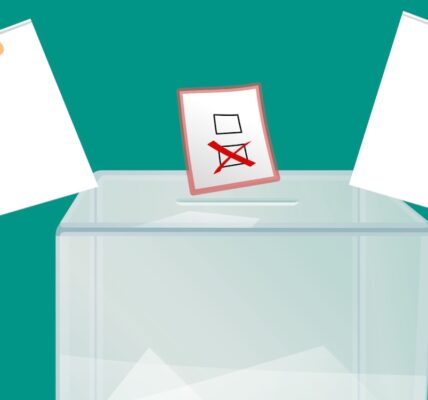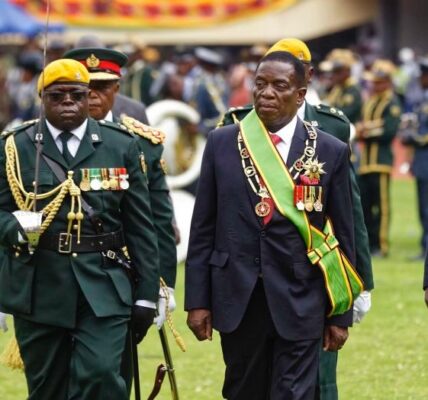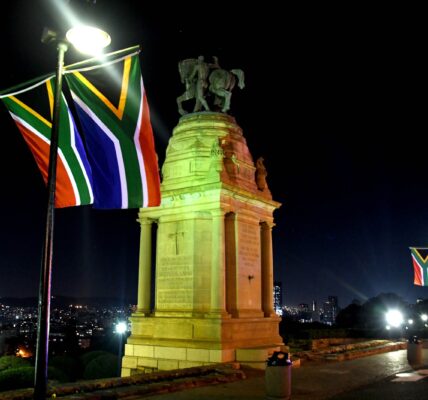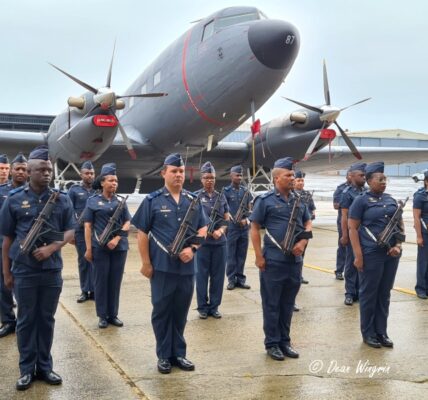Zuma’s MK Party surge in South Africa mirrors global rise in right-wing populism – Songeso Zibi
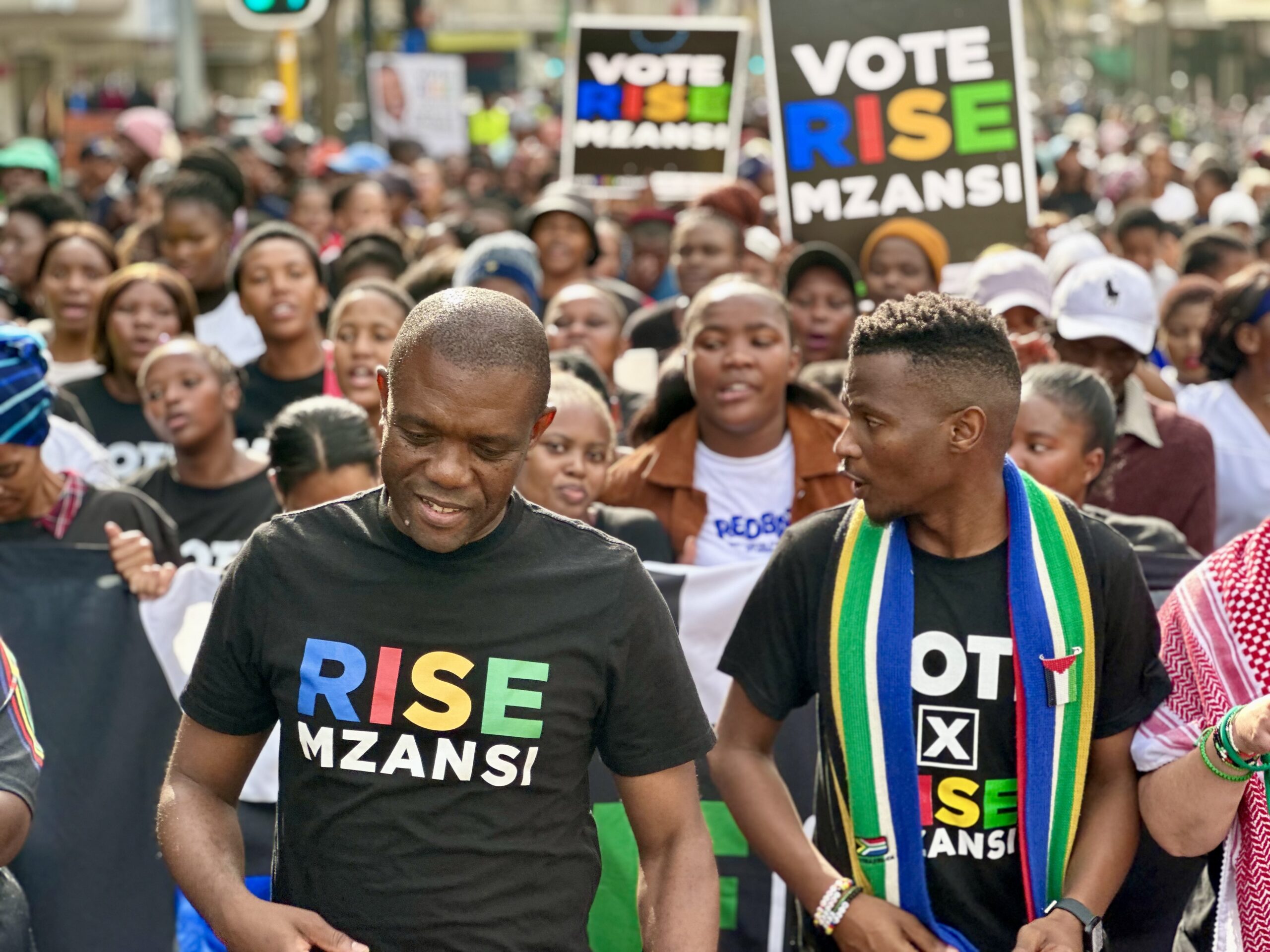
A defining feature of South Africa’s national election was the emergence of the uMkhonto we Sizwe Party (MKP) of Jacob Zuma. Songezo Zibi, leader of a new opposition party Rise Mzansi, says the surge of the MKP and the growth of the Patriotic Alliance of Gayton McKenzie reflect the rise of right-wing identity politics in the country. Zibi, a former journalist and editor whose party gained two seats in Parliament after the May elections, argues that the language and actions of Zuma and the MKP mirror the rhetoric of the MAGA movement in the United States “dot for dot.” In an interview with National Security News, Zibi said Rise Mzansi would support the presidential candidate of the biggest party in Parliament, the ANC, which no longer has a majority. However, he advocates for the position of Speaker to go to a member of the opposition who will not be part of the new Government of National Unity. As a new generation of leaders in South Africa not linked to the ANC or corruption, Zibi aims to restore trust in politicians.
Worrying surge in anti-Immigration, anti-Constitution, and anti-LGBT Sentiment in South Africa
The uMkhonto we Sizwe Party (MKP) affected nearly everybody. By our own calculation, we lost between two and four seats just to the MKP in this election between Gauteng province and the city of eThekwini, where we otherwise had been doing really well. I think South Africans are really angry.
There are two major patterns in this election. First, even more South Africans abstained from voting, with a voter turnout just over 58% compared to the previous election, which was in the sixties, and it’s been declining since 2009.
The second pattern is that parties I consider to be right-wing and not particularly thoughtful about policies or nuanced in the way that mature democracies are, won big. They are the right-wing political parties, identity politics, who issue subtle threats of violence, or at least legislation that inflicts some kind of violence on a certain identity or group of people.
If you look at the ANC, they declined significantly, the Democratic Alliance declined in absolute numbers, and the Economic Freedom Fighters also declined. The parties that gained were the Patriotic Alliance, which has a massive anti-immigrant stance, and the MK Party, which is against gays, the constitution, etc. These parties won big in this election. That should be worrying.
Tone of political conversation in SA mirrors right-wing politics in Europe and the US, increasing polarisation
I am seeing the same trend, not just electorally, but also in the tone of the political conversation. South Africa’s political conversation used to be more thoughtful. However, with the advent of social media echoes and active disinformation and misinformation, which appears to be very systematic, you are beginning to see the polarisation of the extremes of politics in South Africa. If you offer anything thoughtful, you get attacked as not being strong enough or being weak. This is worrying because both electorally and in political conversations between elections, the polarization is increasing. It is no longer just racial polarization, although it might use racial elements. The ability of the political system to reach consensus is weakening, and that is really worrying.
Zuma election reaction = US MAGA movement
I said before this election that the development of the uMkhonto we Sizwe Party (MKP), at least in terms of their political rhetoric and the touch points they use for their political message, matches almost dot for dot the development of the MAGA movement in the United States. Zuma said they would win a two-thirds majority, and if they didn’t, the election was rigged. They are now challenging the result in court, claiming the election is illegitimate without providing evidence. They have also challenged the legitimacy of the courts, calling the chief justice and all judges corrupt. This mirrors American politics, where the system is often labeled as rigged and democracy as dysfunctional. There is also an admiration for Russian authoritarianism and strong leaders like Vladimir Putin, as seen on social media. Countering this is difficult because people are losing the ability to listen and digest information, which is worrying both here and globally.
Rise Mzansi does not want a constitutional crisis in South Africa
We decided to talk to everybody. We have been speaking to the African National Congress and other opposition parties. Our approach is very pragmatic. The South African constitution requires us to elect a speaker, deputy speaker, and president within 14 days, and a president must be inaugurated within 21 days of an election. We do not want a constitutional crisis, so we have told the ANC and other parties that we will be as helpful as possible in ensuring stability. We must avoid a constitutional crisis, get through the first 14 days, and then discuss future arrangements.
We are not just thinking about cabinet positions. Parliament is a crucial part of the governing process, holding the executive to account and ensuring proper oversight over government agencies, including the police. At this point, our focus is on being effective members of parliament. If an opportunity for an executive role arises, we will consider it, but it is not our primary objective.
Trust needs to be fixed in SA between electorate and politicians
There is space for that change, but we need to fix trust because people don’t trust politicians. Even for us, people are skeptical because we are actively involved in politics. We need to build trust through consistent engagement with communities. We started a concept called People’s Assemblies, where we consult with people, tell them what’s happening in parliament, and take their views back to parliament. This rinse and repeat process helps establish a culture of accountability and transparency in democracy.
Backing Ramaphosa for president, Speaker should come from opposition outside GNU
We believe the party with the largest block of votes should have the opportunity to form a government. We do not support having an executive party also control the speakership, so we cannot support an ANC speaker. We have communicated this to all political parties, and there is general support for this principle. If there is a second candidate, we are likely to support an ANC president as long as they are acceptable, but we will not vote for an ANC speaker. This principle ensures a balance of power. Our principle is clear: If you are in government, you should not control the body that oversees you.


